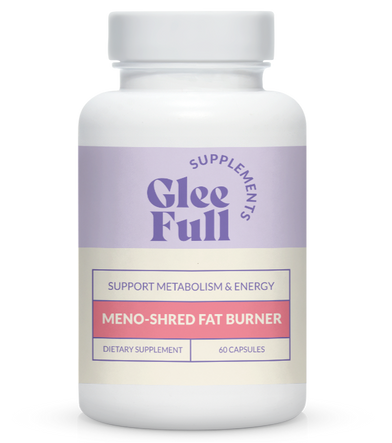Your Cart




Our digestive system, a complex symphony of organs and microbes, works tirelessly to break down food and absorb nutrients. But sometimes, the conductor gets thrown off beat, leading to a discordant chorus of uncomfortable symptoms.
Let's journey through the landscape of digestive distress, exploring the different types and their potential causes:
From gulping air (hello, chewing gum!) to bacterial fermentation of certain foods (hello, beans!), gas can inflate your insides.
Gluten, lactose, or FODMAPs can lead to digestive difficulties like bloating if your body struggles to break them down. Irritable bowel syndrome (IBS): This chronic condition can cause bloating alongside other symptoms like constipation or diarrhea.
Spicy foods, fatty meals, and stress can trigger an overproduction of acid, leading to heartburn and indigestion.
Hormonal changes and pressure from the growing baby can contribute to heartburn during pregnancy. Fiber bulks up stool and keeps things moving smoothly. A lack of fiber can lead to constipation. Water is essential for proper digestion and stool consistency. Not drinking enough can lead to constipation. Certain medications, like painkillers, can have side effects like constipation. Hormonal imbalance can also slow down digestion, leading to constipation.
Irritate the gut and cause diarrhea. Similar to bloating, certain foods can trigger diarrhea in individuals with intolerances. Antibiotics and other medications can have diarrhea as a side effect. The gut-brain connection is real, and stress can sometimes manifest as diarrhea.
Gut woes like bloating, discomfort, and indigestion can turn even the brightest day into a gassy, rumbling saga. But before you resign yourself to a life of baggy pants and Pepto-Bismol binges, let's become gut detectives and uncover the sneaky culprits hiding in your environment and on your plate.
These agricultural nasties lurk on fruits and veggies, potentially disrupting your gut microbiome's delicate balance. Opting for organic produce or thoroughly washing conventional options can help minimize their impact. Lead, mercury, and other heavy metals can infiltrate your body through air pollution, contaminated water, and even certain fish. Investing in air purifiers, choosing clean water sources, and limiting high-mercury fish like tuna can lessen the burden.
Single-use plastics leach harmful chemicals like BPA into your food and drinks. Using reusable containers, avoiding processed foods in plastic packaging, and opting for glass or stainless steel water bottles can keep these pesky plastics at bay. Synthetic fragrances in perfumes, cleaning products, and even laundry detergents can trigger gut irritation in some individuals. Switching to natural, fragrance-free options can offer relief.
For those with gluten sensitivity or celiac disease, gluten-containing foods like wheat, barley, and rye can wreak havoc on the gut. Identifying and eliminating gluten sources from your diet can bring significant relief.
Fermentable Oligosaccharides, Disaccharides, Monols and Polyols (FODMAPs) are short-chain carbohydrates found in various foods like wheat, beans, fruits, and vegetables. They can be tough for some gut bacteria to digest, leading to bloating and discomfort. Identifying and moderating your intake of FODMAPs can be helpful.
Lactose, the sugar found in milk, can be poorly digested by individuals with lactose intolerance, leading to gas, bloating, and other digestive woes. Choosing lactose-free dairy products or plant-based alternatives can offer relief.
While spices can add flavor and health benefits, some, like chili peppers, can irritate the gut lining and trigger discomfort. Moderating your intake of spicy foods or avoiding them altogether if gut issues flare up is key.
Imagine your gut as a bustling city, teeming with trillions of microscopic citizens (gut bacteria) responsible for digesting food, producing nutrients, and even influencing your mood. When these citizens live in harmony, the city flourishes, and so does your well-being. But when certain stressors or bad habits throw the city into chaos, your mood can take a nosedive.
Chronic gut inflammation, often triggered by poor diet, stress, or environmental toxins, can send inflammatory signals to the brain, negatively impacting mood and triggering anxiety or depression.
This feel-good neurotransmitter, crucial for regulating mood, sleep, and appetite, is actually produced in large part by your gut microbes! Imbalances in your gut bacteria can throw off serotonin production, leading to mood swings and low energy.
It's a two-way street! Stress can wreak havoc on your gut, while an unhappy gut can amplify stress levels, creating a vicious cycle of negativity. Your gut bacteria communicate with your brain through nerves and neurotransmitters, influencing how you experience the world and manage emotions. An imbalanced gut can disrupt this communication, leading to anxiety, depression, and other mental health challenges.
We all know the saying, "you are what you eat." But what if we took it a step further? What if how you eat impacts not just your physical health, but your mental well-being too? Well, buckle up, fellow foodies, because we're about to embark on a delicious journey of mindful eating, exploring its ability to nourish your gut and boost your mood.
Think of your gut as a vibrant garden. Mindful eating is like being a wise gardener, choosing nutrient-rich seeds (food) with intention and care. These seeds sprout into beneficial bacteria, creating a thriving ecosystem that fuels your body and mind. But just like a neglected garden, the wrong choices can lead to weeds (inflammatory foods) and imbalances, negatively impacting your gut and, in turn, your mood. So, how do we cultivate a gut garden that blooms with both physical and mental well-being? Here are some mindful eating practices for a happier, healthier you:
Chew slowly, and pay attention to the textures, aromas, and flavors of your food. This promotes mindful digestion and allows your body to recognize satiety cues, preventing overeating. Nourish your gut with a colorful variety of fruits, vegetables, and whole grains. These are packed with prebiotics, the fertilizer for your gut's good bacteria. Aim for the colors of the rainbow to ensure diversity and a feast for your gut microbes.
Choose foods rich in mood-boosting nutrients like Vitamin D, Omega-3 fatty acids, and gut-friendly B vitamins. Fermented foods like yogurt and kimchi also provide probiotics, the superheroes of gut health. Stress is the enemy of both gut and mood. Create a calm and enjoyable atmosphere while eating. Take deep breaths, practice gratitude for your food, and savor the social connection of sharing meals with loved ones.
That unsettling tango of butterflies, grumbles, and maybe even the occasional tap dance. But fear not, fellow gut warriors! Today, we're armed with practical strategies to tame the stress dragon and restore harmony to your digestive symphony. Stress, that pesky fight-or-flight response, throws your body into chaos. Cortisol, the stress hormone, acts like an unwelcome conductor, disrupting your digestive symphony. It can slow down digestion, increase stomach acid, and wreak havoc on your gut bacteria. This leads to the unpleasant ensemble of bloating, heartburn, constipation, or even diarrhea.
Our sleep cycle and gut health dance a delicate tango. Sleep deprivation disrupts your body's production of melatonin, a gut-loving hormone that aids digestion and regulates your microbiome. Meanwhile, an unhappy gut can trigger sleep disturbances, creating a vicious cycle of discomfort.
Create a sleep sanctuary! Ensure your bedroom is dark, cool, and quiet. Ditch electronics at least an hour before bed to calm your mind and nervous system.Melatonin loves darkness. Dim your lights in the evening and invest in black out curtains to optimize melatonin production, aiding digestion and sleep.
Unwind before bed! Take a warm bath, read a soothing book, or practice gentle yoga or meditation. Find what slows your racing mind and preps your body for rest.
Even weekends! Going to bed and waking up at consistent times regulates your body's natural rhythms, including those governing digestion. Avoid heavy meals or sugary snacks close to bedtime. Opt for light, gut-friendly options like yogurt with berries or herbal tea. Remember, your gut needs time to digest before you hit the hay.
Chronic stress wreaks havoc on both sleep and gut health. Practice stress-management techniques like deep breathing, mindfulness exercises, or spending time in nature. A calm mind leads to a calm gut and a restful night.
Forget what you think you know about "trendy gut cleanses" and restrictive diets. Today, we're celebrating the true heroes of good health – the vibrant ecosystem teeming within your belly, your very own personal "gut garden." And guess what? You hold the key to unlocking its incredible potential, not with fancy supplements or fad diets, but with the power of everyday food!
Imagine your gut as a bustling city, buzzing with trillions of tiny microbial citizens – your gut bugs. These little guys (and gals) play a crucial role in your overall health, influencing everything from digestion and immunity to mood and brain function. So, it's our job to create an environment where these good-guy bugs can thrive and perform their magic.
Just like any city, your gut garden needs the right resources to flourish. Here are some potent "fertilizers" to nourish your friendly gut bugs. Try Meno Belly Flusher.
Building a thriving gut garden isn't a one-size-fits-all sprint. It's a joyful experiment, a delicious exploration of new foods and lifestyle choices.
When it comes to gut woes, popping a probiotic pill or chugging kombucha like magic elixir might seem tempting. But what if we told you there's no one-size-fits-all solution for belly grumbles and digestive disasters? Shocking, right? Buckle up, gut warriors, because it's time to bust the myth of the universal gut fix and embrace the beauty of personalization.
Your gut is a vibrant ecosystem, teeming with a personalized orchestra of billions of microbes. From fiery ginger lovers to cautious carb connoisseurs, we all have unique dietary preferences, stress levels, and environmental experiences that shape our gut landscape. What nurtures one gut might turn another into a warzone.
Would you wear someone else's ill-fitting shoes all day just because they happened to be labeled "comfort sandals"? Of course not! Your feet, like your gut, deserve a customized approach.
While food reigns supreme in nourishing these gut bugs, a thriving microbiome needs more than just a delicious feast!
While food should be your primary source of prebiotics, certain supplements can provide an extra boost. Try Meno Belly Flusher.
Remember, cultivating a diverse microbiome is a journey, not a destination. Experiment with different strategies, listen to your body, and celebrate the small victories. With dedication and creativity, you can create a flourishing gut garden that supports your overall health and well-being.
So, go forth, explore, and nurture the incredible world with Meno Belly Flusher!